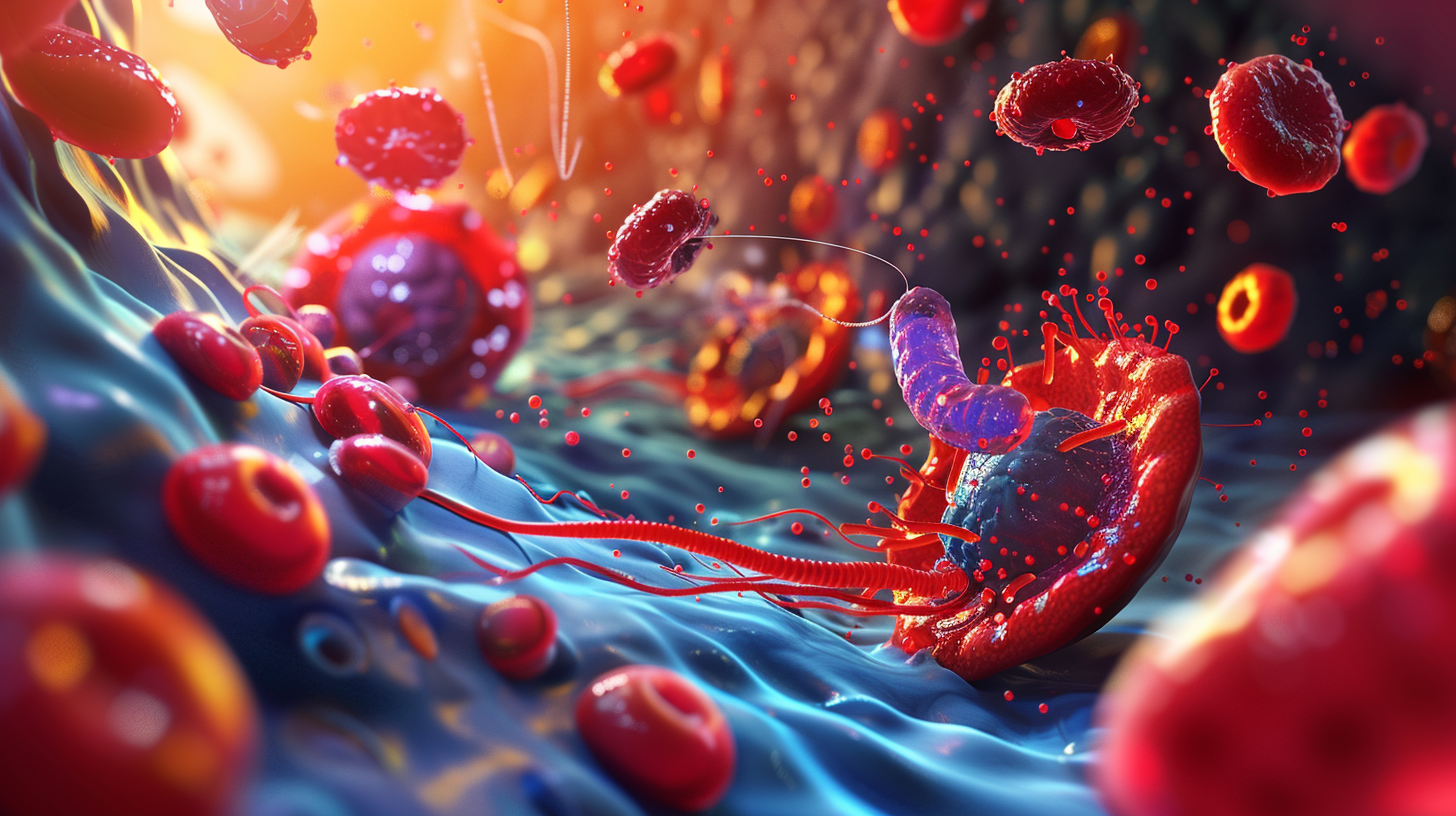
An advanced medical illustration showcasing the mechanism of GLP-1 receptor agonists in type 2 diabetes treatment. The image should depict a vibrant scientific scene with blood sugar regulation, weight loss, and lipid improvement visual cues, all in a clinical setting.
Glucagon-like peptide-1 receptor agonists (GLP-1RAs) have become a game-changer in managing type 2 diabetes, offering benefits beyond standard glucose control. This article explores the comparative efficacy of GLP-1RAs in controlling blood sugar, weight, and lipid levels, addressing the global diabetes crisis affecting over 463 million individuals.
The Effectiveness of GLP-1RAs
Doctors have long sought treatments that can efficiently manage type 2 diabetes without the downsides like hypoglycemia and weight gain. The introduction of GLP-1RAs has presented an exciting advancement. These medications, such as liraglutide, dulaglutide, and semaglutide, have been found to effectively lower glucose levels by enhancing insulin secretion and reducing glucagon during hyperglycemia.
Dr. Haiqiang Yao explains: “Our study highlights how different formulations of GLP-1RAs, whether long-acting or short-acting, can be tailored to individual patient needs. The right choice of medication can dramatically impact the glycemic control in a patient.”
Weight Loss Benefits
In addition to glycemic control, GLP-1RAs also offer significant weight loss benefits. This is especially crucial for people with type 2 diabetes, who often struggle with obesity. Research suggests that long-acting GLP-1RAs like semaglutide and dulaglutide can produce profound effects on body weight.
“Weight loss is a critical factor in diabetes management,” says Dr. Anqi Zhang. “GLP-1RAs not only help in reducing blood sugar but also in controlling appetite, leading to sustained weight loss over time.”
Impact on Lipid Profiles
The lipid-lowering effects of GLP-1RAs further increase their appeal in diabetes management. These medications have been shown to improve lipid profiles, reducing the risk of cardiovascular events in people with type 2 diabetes, who are already at high risk.
Dr. Delong Li emphasizes: “Improvements in lipid profile are vital for reducing long-term complications in diabetic patients. Our meta-analysis sheds light on the extent to which GLP-1RAs can improve both cholesterol and triglyceride levels.”
Safety and Tolerability
While GLP-1RAs present impressive benefits, safety remains a primary concern. Some formulations come with side effects like gastrointestinal discomfort. However, the overall tolerability of these medications is considered favorable compared to other diabetes treatments.
Dr. Jin-Yi Wan adds: “It’s essential to balance efficacy with safety. Clinicians need to consider individual patient characteristics and potential side effects when prescribing GLP-1RAs. Our analysis provides a comprehensive overview that aids in this decision-making process.”
GLP-1RAs offer a promising future for type 2 diabetes treatment by combining glycemic control, weight loss, and lipid improvements. The findings of this study provide valuable guidance for clinicians aiming to tailor diabetes management strategies based on patient needs and drug profiles.
Citation: Yao H, Zhang A, Li D, Wu Y, Wang CZ, Wan JY, Yuan CS. Comparative effectiveness of GLP-1 receptor agonists on glycaemic control, body weight, and lipid profile for type 2 diabetes: systematic review and network meta-analysis. BMJ. 2024;384. doi:10.1136/bmj-2023-076410.
License:
This content is generated from the original article original article and it’s under Creative Commons Attribution Non Commercial (CC BY-NC 4.0) license, which permits others to distribute, remix, adapt, build upon this work non-commercially, and license their derivative works on different terms, provided the original work is properly cited and the use is non-commercial.






